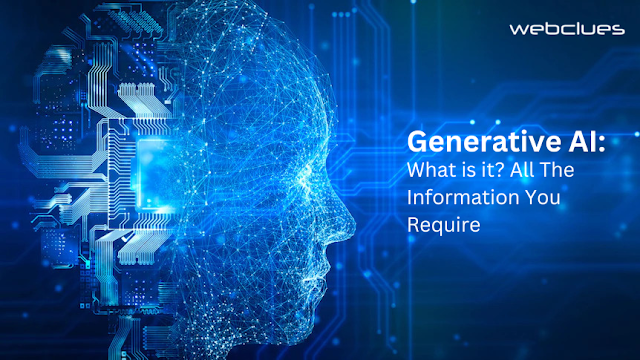At the heart of GenAI is the concept of generative models, algorithms designed to learn and mimic the underlying structures of a given dataset. These models can then produce new instances of data that closely resemble the examples they were trained on. One of the key breakthroughs in GenAI has been the development of generative models such as Generative Adversarial Networks (GANs) and Variational Autoencoders (VAEs).
GANs, introduced by Ian Goodfellow and his colleagues in 2014, consist of two neural networks – a generator and a discriminator – engaged in a competitive learning process. The generator creates synthetic data, attempting to produce content indistinguishable from real examples, while the discriminator evaluates the generated content against real data. This adversarial process continues until the generator produces high-quality content that the discriminator struggles to differentiate from authentic examples.
On the other hand, VAEs are probabilistic generative models that aim to learn the underlying structure of the input data by capturing its distribution. VAEs focus on encoding input data into a latent space, where new samples can be generated by sampling from this space. Unlike GANs, VAEs are more concerned with understanding the probability distribution of the data rather than generating specific instances.
Generative AI has made significant strides in various applications, with text generation being one of the most prominent examples. OpenAI's GPT (Generative Pre-trained Transformer) models, including GPT-3, have demonstrated the capability to generate coherent and contextually relevant text across a wide range of topics. These models are pre-trained on massive datasets, allowing them to learn the intricacies of language and context, making them versatile in tasks like content creation, translation, and even code generation.
In the realm of image generation, GenAI has produced awe-inspiring results. StyleGAN, for instance, is a GAN-based model capable of generating highly realistic images with unprecedented control over various visual attributes, such as facial features and artistic styles. This technology has found applications in the creation of lifelike deepfake videos, digital art generation, and even in helping artists envision non-existent landscapes or characters.
The music industry has also witnessed the impact of GenAI with models like OpenAI's MuseNet and Google's Magenta Studio. These models can compose original music by learning patterns from a vast array of musical genres and styles. They empower musicians and composers by providing them with new tools for inspiration and collaboration.
Despite its impressive capabilities, Generative AI also raises ethical concerns. The ability to generate highly realistic fake content, commonly referred to as deepfakes, poses a risk in terms of misinformation, identity theft, and other malicious activities. Striking a balance between the benefits and risks of GenAI requires careful consideration and the development of robust ethical frameworks.
In conclusion, generative AI represents a revolutionary approach to artificial intelligence by enabling machines to create novel content across various domains. Whether it's generating realistic text, images, music, or other forms of data, these models have showcased the potential to transform industries and redefine human-machine interactions. However, as with any powerful technology, the responsible development and use of generative artificial intelligence are crucial to mitigate potential risks and ensure its positive impact on society. Discover the boundless opportunities with Webclues Infotech’s innovative genAI solutions and unleash the potential of innovation!


0 Comments